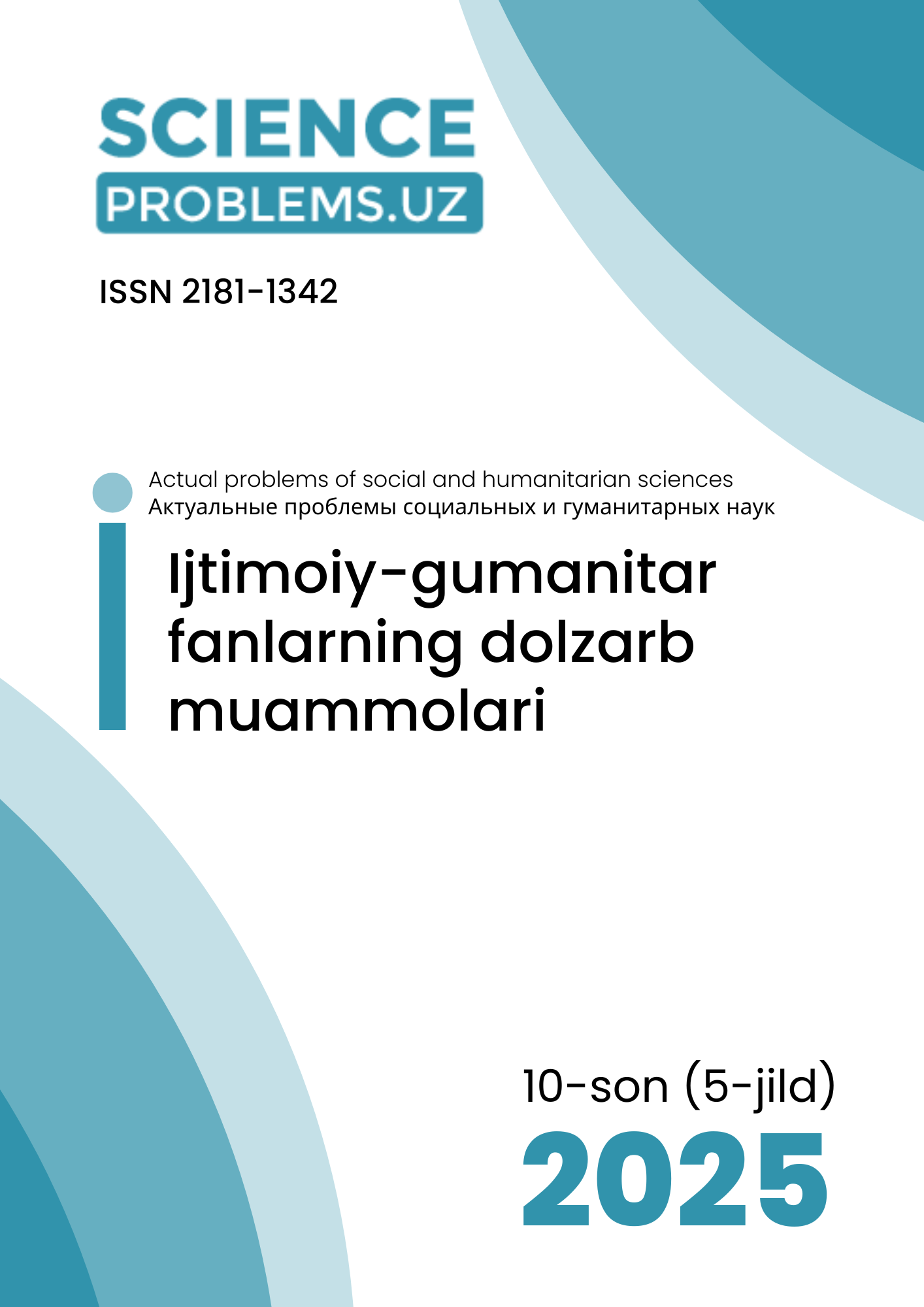COMPARATIVE ANALYSIS OF PERSON NOUN-FORMING AFFIXES IN UZBEK AND ENGLISH LANGUAGES
DOI:
https://doi.org/10.47390/SPR1342V5I10Y2025N51Keywords:
word formation model, person noun, affix, suffix, comparative analysis, derivation, Uzbek language, English language, word-forming element, national-cultural factorsAbstract
This article presents a comparative analysis of person noun-forming affixes in Uzbek and English languages. The research examines word formation models in both languages, their structural and semantic features. Eleven active person noun-forming affix models in Uzbek and twelve models in English have been analyzed. The research findings revealed that in Uzbek, models based on nouns predominantly prevail, while in English, words are also actively formed from verbs and adjectives. Additionally, the study identified the presence of special affixes expressing gender indicators in English and specific features of prefix model participation in Uzbek. The article also compares models of other noun-forming affixes in both languages and highlights the national-cultural factors of the word formation system.
References
1. Abduraximova F.B. Turli tizimli tillarda so‘z yasalishining lingvomadaniy xususiyatlari (ingliz va o‘zbek tillari misolida) Filol. fan. b. fals. dokt. (PhD)… diss. – Tashkent, 2024 – 184 b.
2. Мешков О.Д. Словообразование современного английского языка. – М.:Наука, 1976. – 278 c.
3. Ўзбек тили грамматикаси. I том. Морфология. – Тошкент: Ўзбекистон Фан, 1975. – 609 b.
4. Ҳожиев А. Ўзбек тили сўз ясалиши. – Тошкент:Ўқитувчи, 1989. – 109 b.
5. Харитончик З.А. Лексикология английского языка. – Минск:Вышэйшая школа. 1992 – 204 b.
6. Ҳожиев А. Ўзбек тили сўз ясалиши тизими. –Тошкент: Ўқитувчи, - 2007 . – Б. 170.








